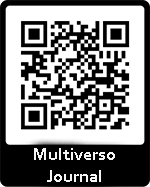La dignidad humana como principio posibilitador en la declaración universal sobre bioética y derechos humanos
DOI:
https://doi.org/10.46502/issn.2792-3681/2023.5.3Palabras clave:
Declaración Universal sobre Bioética y Derechos Humanos, principios bioéticos, dignidad humana, Latinoamérica, pensamiento crítico.Resumen
En el presente ensayo se describe por qué la dignidad humana, como principio, posibilitó o al menos creo las condiciones de posibilidad, para que se diera la Declaración Universal sobre Bioética y Derechos Humanos. Al mismo tiempo, interesó discutir como este principio fue de máxima importancia para los logros y desarrollos de la bioética en Latinoamérica, pues ya se había avanzado en el reconocimiento, promoción y respeto de los Derechos Humanos. Por lo demás, se realizó un acercamiento a las circunstancias y razones que configuraron la Declaración universal sobre bioética y derechos humanos, como un hito en la investigación bioética de carácter fundamental para Latinoamérica. Las reflexiones efectuadas por los autores permiten concluir sobre la necesidad manifiesta de continuar el desarrollo en la región del discurso bioético. Definitivamente, el siguiente paso debería ser generar una Convención Interamericana para crear un sistema y estructura regional, desde el cual se pueda promover la bioética de cara a las particulares necesidades e interés del subcontinente.
Citas
Ansuátegui, R. F. (1994). Orígenes doctrinales de la libertad de expresión. Madrid: Universidad Carlos III de Madrid.
Beauchamp, T., & Childress, J. (1979). Principles of Biomedical Ethics. Oxford: Hasting Center.
Beauchamp, T., & Childress, J. (1999). Principios de ética biomédica. Barcelona: Masson.
Boft, L. (1980). Gracia y liberación del hombre. Experiencia y doctrina de la gracia. Madrid: Ediciones Cristiandad.
Casado, M. (2009). Sobre la dignidad y los principios. Análisis de la Declaración sobre Bioética y Derechos Humanos UNESCO. Barcelona: Observatory of Bioethics and Law.
Castilla, C. B. (2015). En torno a la fundamentación de la dignidad personal. Revista de ciencias jurídicas y sociales Nueva Época, 61-80.
Cons Pol Col, Cons Pol Col 1991 (Asamblea Nacional Constituyente 20 de 07 de 1991).
Cruz, V. P. (1989). Formación y evolución de los derechos fundamentales. Revista Española de Derecho Constitucional, 35-62.
Florit, A. (2010). Globalización y bioética. Hospitalarias humanizaciones, 11 - 33.
Garrafa, V., & Porto, D. (2008). Diccionario Latinoamericano de bioética. Brasilia: Universidad de Brasilia.
Hathaway, M., & Boft, L. (2014). El Tao de la liberación: Una ecología de transformación. Trotta.
Hayek, F. (1933). Monetary Theory and the Trade Cycle. London: Jonathan Cape.
Kevin, B. (1999). Disposable People: New Slavery in the Global Economy. San Diego: University of California Press. ISBN 0-520-21797-7.
Maquiavelo, N. (1978). El Principe. Madrid: Espasa Calpe S.A.
Marx, C. (1888). Theses on Feuerbach. Londres.
ONU. (1948). Declaración Universal de los Derechos Humanos. Declaración Universal de los Derechos Humanos. Paris, Paris, Paris: ONU.
Potter, R. V. (1970). Bioethics, the Science of Survival. Johns Hopkins University Press, 127-153.
Potter, V. R. (1971). Bioethics: Bridge to the Future. New Jersey: Prentice Hall.
Sagols, L. (2015). El futuro de la bioética. En G. Solinis, ¿Por qué una bioética global? (p. 168). Paris: UNESCO.
Schwab, K. (2016). La cuarta revolución industrial. Madrid: Debate.
Sen, A. (1981). Poverty anf Famies: An Essay on Entitlements and Deprivation. Oxford: Clarendon Press Oxford.
UNESCO. (2005). Declaración Universal sobre Bioética y Derechos Humanos. Declaración Universal sobre Bioética y Derechos Humanos. Paris, Paris, Paris: UNESCO.
Publicado
Cómo citar
Número
Sección
Licencia
Derechos de autor 2023 Camilo Andrés Vargas Machado, Claudia Fabiola Vargas Sepúlveda, Julie Armenta Calderón

Esta obra está bajo una licencia internacional Creative Commons Atribución 4.0.
Los autores que publican en esta revista están de acuerdo con los siguientes términos:
Los autores conservan los derechos de autor y garantizan a la revista el derecho de ser la primera publicación donde se presenta el artículo, el cual se publica bajo una Creative Commons Attribution License, que permite a otros compartir el trabajo previo el reconocimiento de la autoría del trabajo y de la publicación inicial en esta revista.
Los autores pueden establecer por separado acuerdos adicionales para la distribución no exclusiva de la versión de la obra publicada en la revista (por ejemplo, situarlo en un repositorio institucional o publicarlo en un libro), con un reconocimiento de su publicación inicial en esta revista.



















